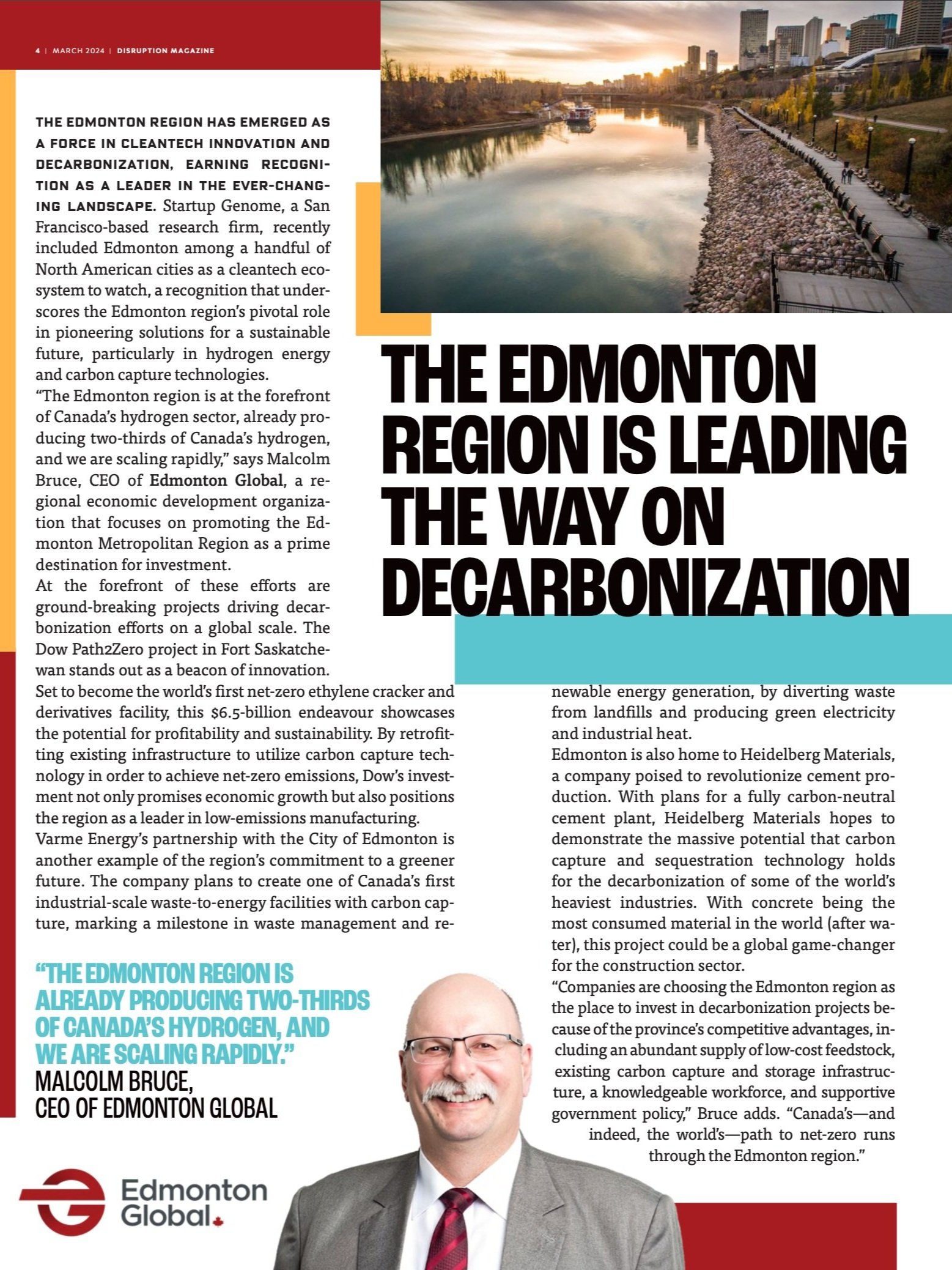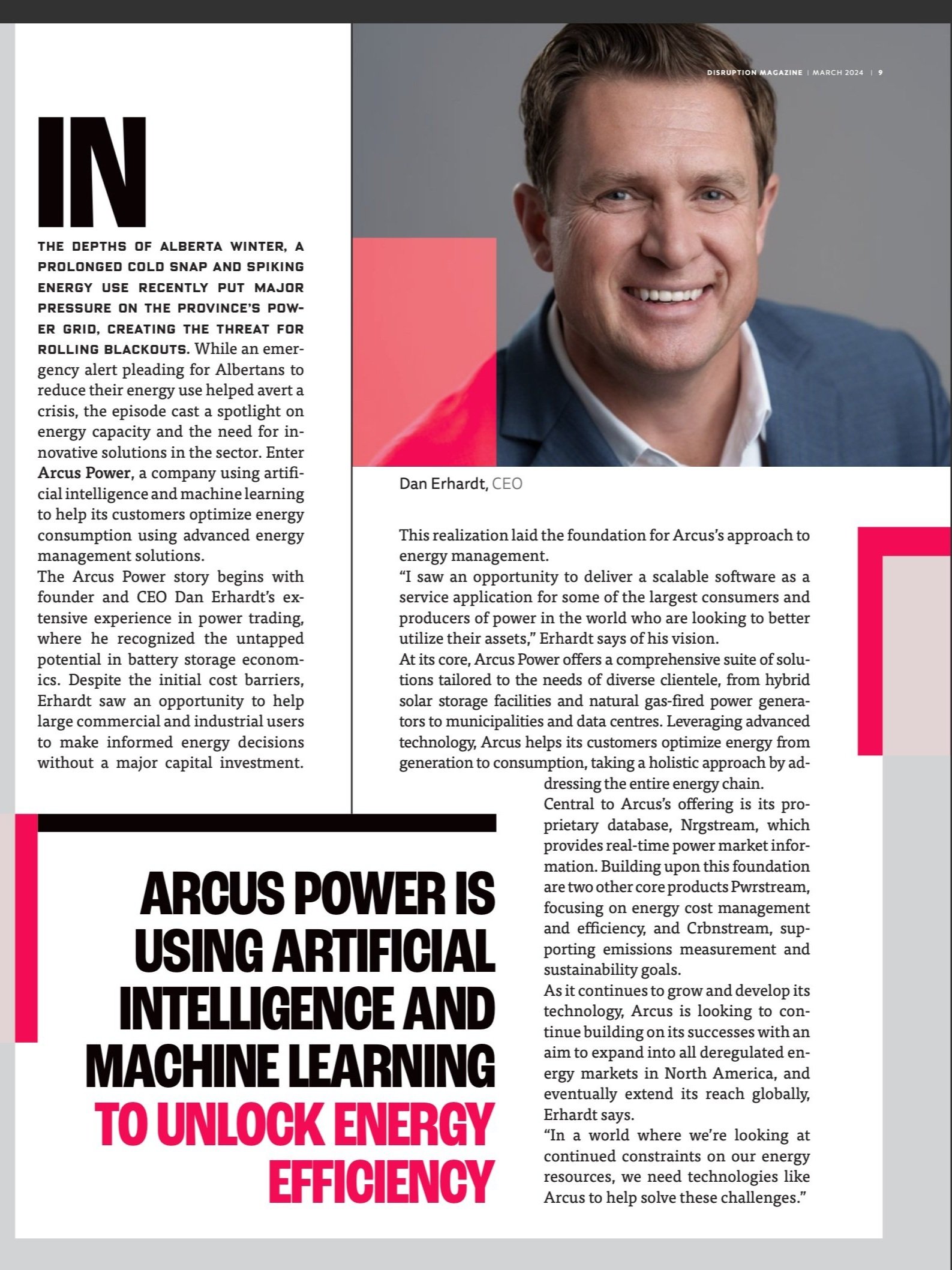Edmonton Leading the Way on Decarbonization
“The Edmonton region is already producing two-thirds of Canada’s hydrogen, and we are scaling rapidly.” - Malcolm Bruce, CEO - Edmonton Global
tl;dr
Regional Leadership: Edmonton is recognized as a top cleantech ecosystem by Startup Genome, leading in hydrogen energy and carbon capture, producing two-thirds of Canada's hydrogen.
Pioneering Projects: The Dow Path2Zero project aims to be the world's first net-zero ethylene cracker, and Varme Energy plans a major waste-to-energy facility with carbon capture, showcasing significant advancements in decarbonization.
The Edmonton region has emerged as a force in cleantech innovation and decarbonization, earning recognition as a leader in the ever-changing landscape. Startup Genome, a San Francisco-based research firm, recently included Edmonton among a handful of North American cities as a cleantech ecosystem to watch, a recognition that underscores the Edmonton region’s pivotal role in pioneering solutions for a sustainable future, particularly in hydrogen energy and carbon capture technologies.
“The Edmonton region is at the forefront of Canada’s hydrogen sector, already producing two-thirds of Canada’s hydrogen, and we are scaling rapidly,” says Malcolm Bruce, CEO of Edmonton Global, a regional economic development organization that focuses on promoting the Edmonton Metropolitan Region as a prime destination for investment.
At the forefront of these efforts are ground-breaking projects driving decarbonization efforts on a global scale. The Dow Path2Zero project in Fort Saskatchewan stands out as a beacon of innovation. Set to become the world's first net-zero ethylene cracker and derivatives facility, this $6.5-billion endeavour showcases the potential for profitability and sustainability. By retrofitting existing infrastructure to utilize carbon capture technology in order to achieve net-zero emissions, Dow's investment not only promises economic growth but also positions the region as a leader in low-emissions manufacturing.
Varme Energy’s partnership with the City of Edmonton is another example of the region’s commitment to a greener future. The company plans to create one of Canada’s first industrial-scale waste-to-energy facilities with carbon capture, marking a milestone in waste management and renewable energy generation, by diverting waste from landfills and producing green electricity and industrial heat.
Edmonton is also home to Heidelberg Materials, a company poised to revolutionize cement production. With plans for a fully carbon-neutral cement plant, Heidelberg Materials hopes to demonstrate the massive potential that carbon capture and sequestration technology holds for the decarbonization of some of the world’s heaviest industries. With concrete being the most consumed material in the world (after water), this project could be a global game-changer for the construction sector.
“Companies are choosing the Edmonton region as the place to invest in decarbonization projects because of the province’s competitive advantages, including an abundant supply of low-cost feedstock, existing carbon capture and storage infrastructure, a knowledgeable workforce, and supportive government policy,” Bruce adds. “Canada's—and indeed, the world’s—path to net-zero runs through the Edmonton region.”











